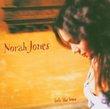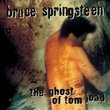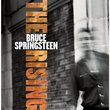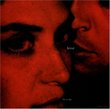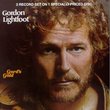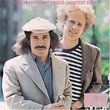| All Artists: Bruce Springsteen Title: We Shall Overcome Seeger Sessions Members Wishing: 0 Total Copies: 0 Label: Columbia Europe Release Date: 4/24/2006 Album Type: Import Genres: Country, Folk, Pop, Rock Styles: Americana, Contemporary Folk, Singer-Songwriters, Folk Rock, Roots Rock Number of Discs: 2 SwapaCD Credits: 2 UPC: 828768307427 |
Search - Bruce Springsteen :: We Shall Overcome Seeger Sessions
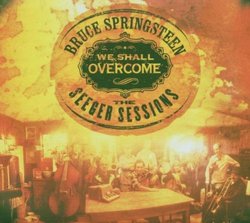 | Bruce Springsteen We Shall Overcome Seeger Sessions Genres: Country, Folk, Pop, Rock
VIDEO A 40-minute film about the recording of the album with artist commentary. Includes filmed performances of: John Henry Pay Me My Money Down Buffalo Gals Erie Canal O Mary DonÂ?t You Weep Jacob&#... more » |
Larger Image |
CD DetailsSynopsis
Album Description VIDEO A 40-minute film about the recording of the album with artist commentary. Includes filmed performances of: John Henry Pay Me My Money Down Buffalo Gals Erie Canal O Mary DonÂ?t You Weep JacobÂ?s Ladder Froggie Went A CourtinÂ? Shenandoah Plus four bonus live tour videos: How Can A Poor Man Stand Such Times And Live (Bruce Springsteen Version) Bring Â?Em Home American Land Pay Me My Money Down Similarly Requested CDs
|
Member CD ReviewsReviewed on 1/7/2007... Cardboard case--2-sided disc--CD and DVD. I can play the DVD side on my computer--but it won't run the CD side. The CD side WILL run on my DVD player. Who knows why???
LOVE "Oh, Mary Don't You Weep" CD ReviewsA minority viewpoint from a fan of both Seeger and Springste bensmomma | Ann Arbor, Michigan | 04/26/2006 (5 out of 5 stars) "As a red-blooded American woman I have always loved Bruce Springsteen's music, but even older than my affection for Bruce is my affection for Pete Seeger. However, for years my husband has felt the need to leave the room whenver I've put Pete's music on, in an effort to escape Seeger's flawless and perfect earnestness. I think he just didn't think Pete was any FUN. Fortunately I think he will like Bruce's "let's have a party" spin on some of Pete's old favorites. If you never thought you'd get up and dance to Pete Seeger music, this album will change your mind. On a more detailed level, the music ranges from really sublime to a bit disappointing. On the disappointing side I found "Shenandoah" almost incomprehnsible; Bruce is mumbling again, the pace is lugubrious, and the beautiful haunting melody is lost in the arrangement. Likewise "How Can I Keep from Singing" (a bonus track). On the other hand, Bruce's choice to use a host of Nawlins musicians on numerous tracks both energizes the music and makes it deeply meaningful on certain songs: "Jacob's Ladder" really swings, and "O Mary Don't You Weep" takes on a kind of redemptive quality. The song's lyrics (O Mary Don't you Weep....Pharoah's Army has drownded) seem to tell the listener that New Orleans will rise from the waters. The horn section really rocks throughout. "We Shall Overcome," in contrast, is quiet, contemplative, and moving - a contrast to the assertive fists-in-the-air version you may have in your head from countless peace marches. By the way, this album comes on two discs - one is a DVD including the filming of several numbers. It didn't add much to my enjoyment of the music. However, if you are looking for the two bonus tracks, "How Can I Keep from Singing" and "Buffalo Gals," which do not appear on either the CD disc or on the liner notes, this is where you must look." Good, honest, traditional music DanD | 04/25/2006 (5 out of 5 stars) "This album raises a couple important questions. First off, why is the best country music of the past ten years coming off of a Bruce Springsteen record? Secondly, why won't radio play songs this honest and true?
But I'm not gonna deal with those questions, because I don't have the time, and quite frankly, I just don't care. What DO I care about, you ask? What I care about is this: Springsteen's latest record, a collection of traditional folk songs attributed to the great Pete Seeger. These songs are true Americana; their simple lyrics paint a portrait of life as seldom seen these days. And Springsteen and company's performance is exquisite; you can tell the musicians are simply having a stellar time performing these little nuggets. By weaving fiddle and banjo into the mix, Springsteen has crafted one of the best folk albums in years...and also, incidently, one of the best country albums...and best rock albums... These songs speak straight to the heart. Most of 'em you'll know--you've heard 'em in concert, on the radio, or maybe even learned them in grade school (there're a couple on here I hadn't even thought of in years; it was a delight to hear them again). "We Shall Overcome: The Seeger Sessions" is a great traditional folk/rock/country record, by Bruce Springsteen, one of the most innovative artists out there. By consistently bending the rules, Sprinsgteen has crafted a legacy of honest, true-to-self material...and this album fits right in there, while at the same time paying homage to one of the great American songwriters. Buy this album, sing along, dance along if you wish, and experience the majesty of what a few simple chords and lyrics can do." |

 Track Listings (13) - Disc #1
Track Listings (13) - Disc #1